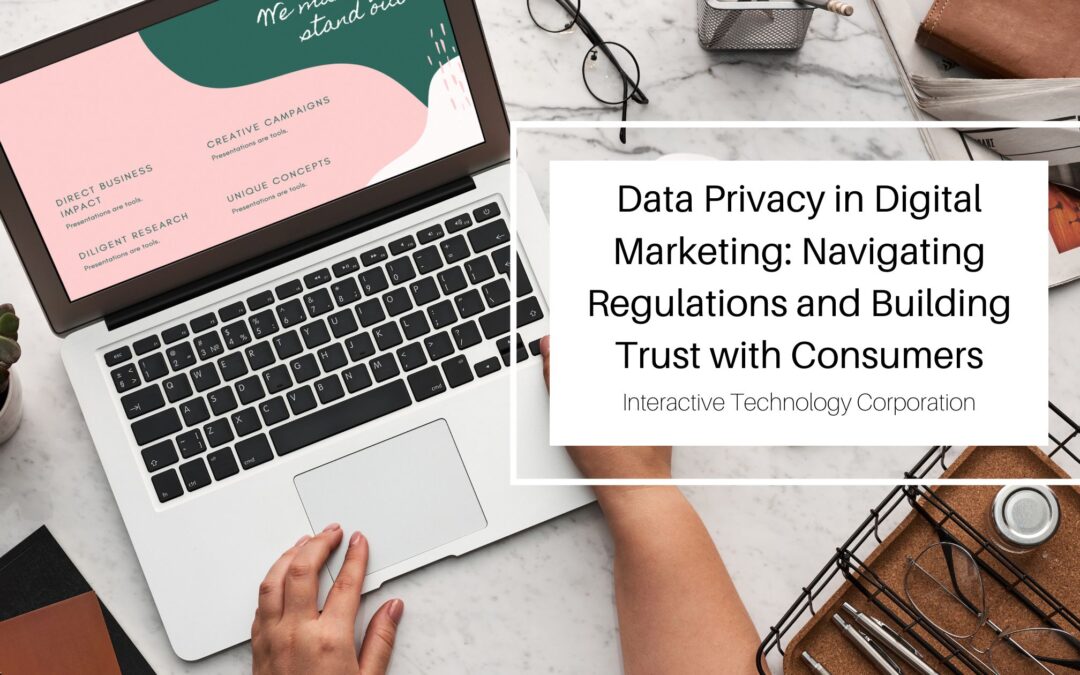Data privacy has become a critical concern for consumers and businesses in today’s digital age. With the widespread collection and use of personal data in digital marketing, companies must navigate regulations and build trust with consumers to protect their privacy. Let’s explore how businesses can effectively manage data privacy while maintaining trust with their audience.
Understanding Data Privacy Regulations:
The first step in navigating data privacy in digital marketing is understanding the regulations governing personal data collection, use, and storage. Laws like the General Data Protection Regulation (GDPR) in Europe and the California Consumer Privacy Act (CCPA) in the United States establish precise guidelines for businesses concerning data protection and the rights of consumers. Companies can ensure compliance and avoid costly penalties by familiarizing themselves with these regulations.
Transparency and Consent:
Transparency is imperative to building customers’ trust. Businesses should communicate how they collect, use, and share personal data and allow consumers to control their privacy settings and preferences. Securing explicit consent before gathering and utilizing personal data is crucial. This involves offering transparent and concise descriptions of how the data will be used and granting consumers the choice to opt in or out of data collection and marketing communications.
Data Minimization and Security:
To minimize the risk of data breaches and unauthorized access, businesses should practice data minimization, which involves collecting only the data necessary for the intended purpose. Moreover, integrating robust security protocols, like encryption, access controls, and regular security audits, can help safeguard personal data from cyber threats and unauthorized access.
Anonymization and Pseudonymization:
Anonymizing or pseudonymizing personal data can further enhance privacy protection. By removing or encrypting identifying information from datasets, businesses can reduce the risk of data re-identification and protect consumer privacy while still being able to derive valuable insights from the data for marketing purposes.
Building Trust Through Transparency and Accountability:
Building trust with consumers is essential for maintaining long-term relationships and loyalty. Businesses can achieve this by being transparent about their data practices, demonstrating accountability in handling personal data, and providing avenues for consumers to exercise their privacy rights. Responding promptly and transparently to data breaches or privacy incidents can help mitigate reputational damage and reinforce consumer trust.
In summary, safeguarding data privacy is a pivotal aspect of digital marketing, demanding thoughtful deliberation and proactive steps to protect consumer privacy and foster trust. By understanding and complying with data privacy regulations, practicing transparency and consent, implementing robust security measures, and prioritizing accountability, businesses can navigate the complexities of data privacy in digital marketing while fostering trust and confidence with their audience.

